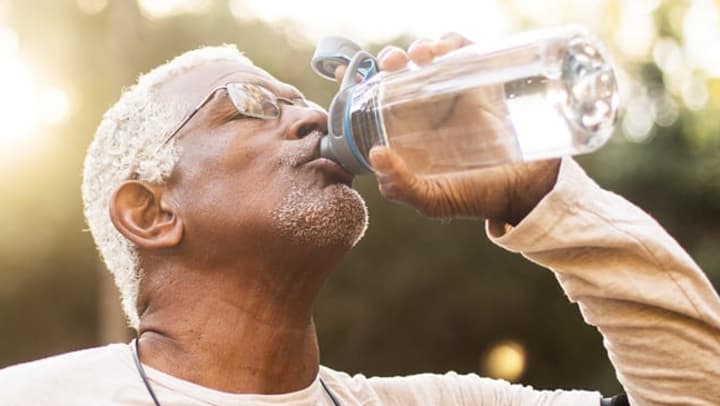It’s clear that there are many benefits of drinking water, including increasing brain power and flushing out toxins. However, seniors can be prone to dehydration for a variety of reasons, and dehydration can be associated with many serious health concerns. Whether you’re a senior or a senior caregiver, it’s important to notice the signs of dehydration in seniors and to work to prevent them from happening.
Reasons Why Seniors Can Be Prone to Dehydration
Dehydration can be dangerous for all individuals, but seniors are especially susceptible. Seniors can be prone to dehydration for a variety of reasons, and the following are among the main causes.
1. Signs of thirst diminish with age. The need for hydration is still there, but the sense of thirst isn’t as strong as it used to be.
2. Medications may affect how much water intake is needed. Medications can have a variety of effects, including the need for more water intake or causing you to sweat more.
3. Seniors may not have the physical or mental ability to drink enough water, know when they are thirsty, or communicate that they are.
Signs of Dehydration
While seniors can be prone to dehydration more than young or middle-aged adults, the signs of dehydration are similar for people of all ages. They include:
● Headaches
● Dizziness
● Low blood pressure
● Sunken eyes
● Inability to sweat or produce tears
● Dry mouth
● Constipation
● Rapid heart rate
● Low blood pressure
● Low urine output
● Lethargy
● Confusion
Preventing Dehydration in Seniors
Because you might not sense that you’re thirsty, it’s important to make a conscious effort to drink water. Be proactive by drinking water first thing in the morning and throughout the day. Add reminders into your phone, or tell someone with you to remind you to drink it.
Other smart tricks include having the water easily accessible, keeping it at the temperature that tastes best to you, and carrying it with you when traveling. If gulping water makes you feel too full, sip it slowly throughout the day. If you simply don’t like the taste of water, consider adding some fresh fruits into it to give it a boost of flavor.
Staying hydrated is especially important for seniors who enjoy spending time outdoors in the summer. Your body must maintain a certain temperature to function at its best, so when you get hot, your body sweats in order to cool itself down. Sweat, of course, means loss of water, so you need to stay hydrated when you’re outdoors. Regulating your body temperature by drinking water could also help you prevent heat exhaustion.
While they can provide some hydration, caffeinated or alcoholic beverages can dehydrate you as well, so it may be wise to limit their consumption, especially in the sun.
It’s also important to remember your water while exercising. Drink a cup of water a few hours before your routine, and take small sips throughout your workout or walk. Drink water after you’re done too.
Because a variety of factors can make a difference for each person, ask your doctor how much water consumption is ideal for you.


